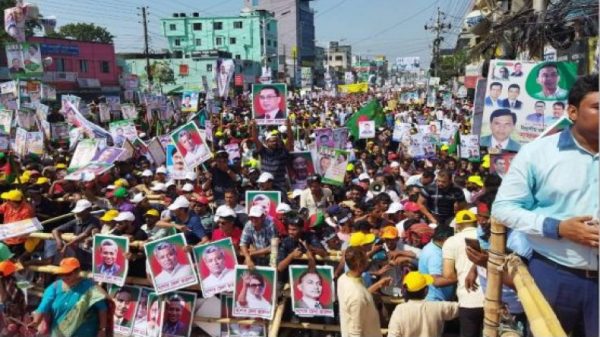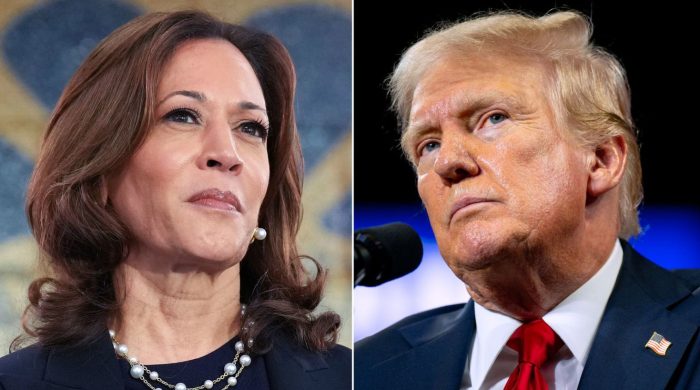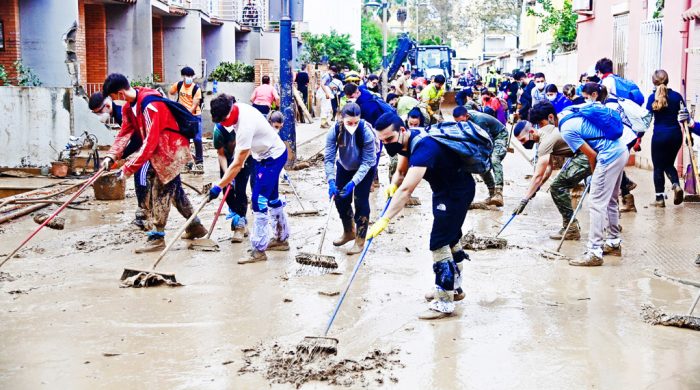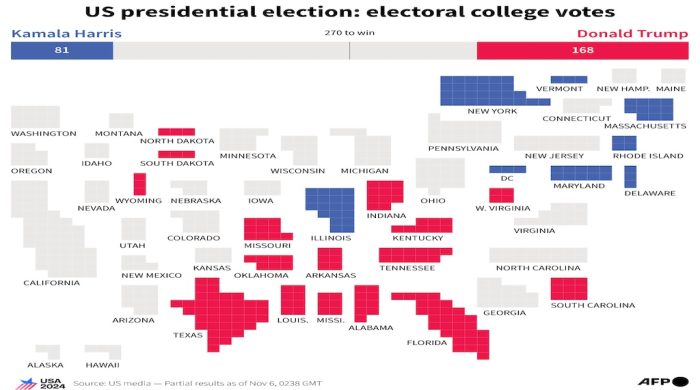BNP rally starts in Khulna defying obstacles

- Update Time : Saturday, October 22, 2022
- 98 Time View

The divisional mass rally of the main opposition Bangladesh Nationalist Party started in Khulna city on Saturday afternoon amid arrests, intimidation, and transport strikes.
The rally started on the Sonali Bank premises at about 12:00 noon, about two hours before the scheduled time.
Thousands of BNP and its associate organisations’ leaders and activists started taking positions at the rally venue since Friday night while on Saturday many more came to the city with processions, defying obstacles on their way.
Khulna city was virtually cut off from the rest of the country following bus and launch strikes from Friday.
Since Saturday morning, no trawlers, ferries and boats were being allowed to come to the city while many people including journalists and patients could not travel to the city.
At Khulna rail station, an incident of chasing between the police and BNP activists took place in the morning.
Incidents of chasing between the BNP and the ruling Awami League activists also occurred at the local ferry jetties.
People including journalists and patients were barred from crossing the river Rupsha and Bhairab since the morning.
BNP leaders in Khulna alleged that many of the leaders and organisers of the rally were arrested days before to obstruct the mobilisation at the district level while the police continued arresting the party activists who were trying to reach the rally despite obstructions.
On September 28, the BNP announced new programmes for the next two months as part of its ongoing movement demanding the resignation of the Awami League-led government and the dissolution of parliament to hand over power to a neutral government for the next general election, and release of BNP chairperson Khaleda Zia, protesting at the abnormal increase in the price of fuel oil and daily commodities and the killing of BNP leaders and activists during party programmes.
The Khulna Bus, Minibus, Coach, and Microbus Owners’ Association announced to stop running buses from 6:00am on Friday till 10:00pm Saturday, protesting against the movement of unauthorised three-wheelers on the highways.
Launch workers stopped running their vessels on Friday demanding an increase in wages.
Thousands of BNP activists came to the Khulna rally venue since Friday by walking, trawlers and using different local transports.
They were seen guarding the rally venue since night and lying there.
On Saturday morning BNP activists from different points were seen entering the city by small procession.
BNP secretary general Mirza Fakhrul Islam Alamgir and senior leaders reached the city and visited the rally venue on Friday night.
In the morning the AL activists were seen patrolling the rivers Rupsha and Bhairab and checking trawlers and boats.
They stopped movement of trawlers, boats and ferries from different points including Amtola, Kalibari and Rupsha ferry ghat.
Around 11:00am two trawlers were seen chasing a trawler with BNP activists and at a point they beat up two to three BNP activists.
Bangladesh Railway, however, continued its services and trains bound for Khulna.
Bangladesh Railway general manager [west zone] Asim Kumar Talukder told New Age that around 11:00am on Saturday around several thousands BNP activists were inside the Khulna rail station while police asked them to leave.
‘An incident of chasing took place then and the activists broke some of our glasses,’ he added.
Apart from the raids and alleged intimidation, the rally committee spokesman, Ehteshamul Haque Shaon, said that police arrested at least 78 leaders and activists of the BNP in different areas of Khulna city ahead of the rally.
People suffered similarly ahead of the BNP rally in Mymensingh held on October 15 as transport stopped running suddenly without a pre-announcement.
BNP leaders alleged that police intentionally arrested the BNP activists and they, along with Awami League activists, also attacked the opposition activists to prevent them from joining the party’s mass rally in Chattogram on October 12.

























